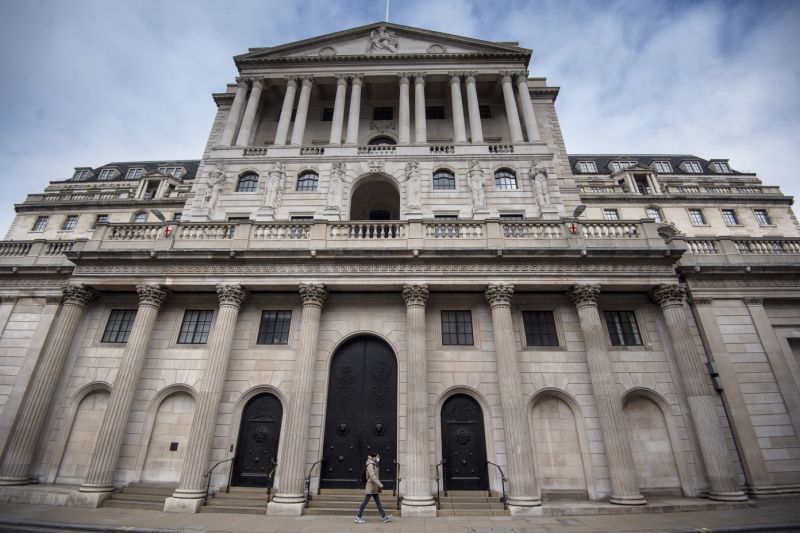
The Bank of England (BOE) on Thursday chose to hold its benchmark interest rate at 0.1% and maintain its pace of asset purchases to lift the economy during the coronavirus crisis. However, it also warned that the UK faces a “very sharp” fall in economic growth.
While the bank decided not to issue its traditional forecasts, the bank predicted that the country’s gross domestic product (GDP) could shrink by 14% in 2020, noting that there would be a “substantial increase” in unemployment in the first half of 2020.
It said, however, that the decline in economic growth should be “temporary” and that activity should pick up “relatively rapidly.”
The bank’s Monetary Policy Committee (MPC) voted unanimously to hold the bank rate at 0.1%.
While the committee also voted to continue with its £200bn ($250bn) asset-purchasing programme, two members voted to increase the target for these purchases by £100bn.
Noting that households and businesses would continue to engage in a degree of precautionary behaviour even once coronavirus restrictions are relaxed, the bank said the economy would still take “some time” to recover towards its previous path.
In what it calls its “illustrative scenario,” which assumes that social distancing measures and government support schemes remain in place until early June before being “gradually unwound” by the end of the third quarter, GDP growth could rebound by 15% in 2021.
“The unprecedented situation means that the outlook for the UK and global economies is unusually uncertain. It will depend critically on the evolution of the pandemic, and how governments, households and businesses respond to it,” the bank said.
In response to the coronavirus crisis, the central bank in recent weeks slashed interest rates to record low levels, dramatically stepped up asset purchases under its quantitative easing programme, and introduced cheap funding for banks to loan to businesses.
The bank also expanded an overdraft-like facility used by the UK government, meaning that it is directly funding the country’s additional spending during the crisis.
المصدر : https://wp.me/p70vFa-BjU




















